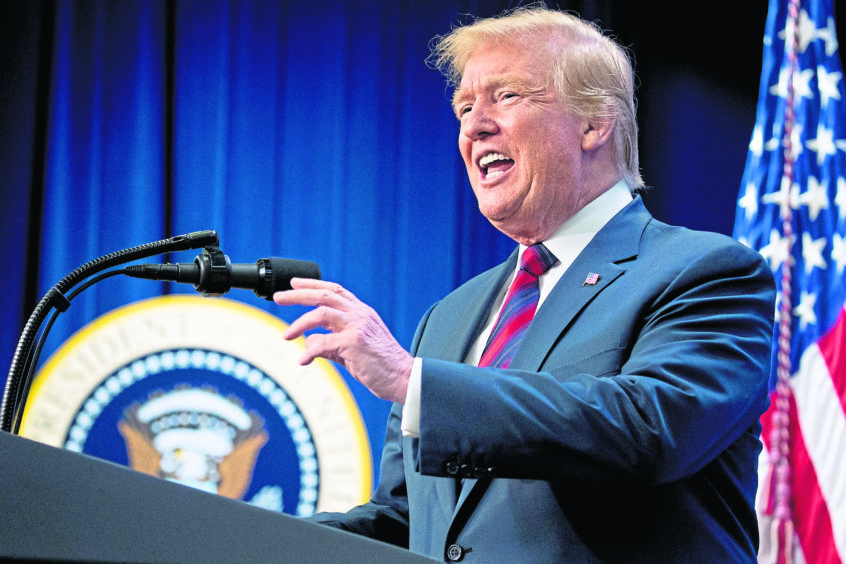
As the global industry assembles in Houston for the Offshore Technology Conference, it will be in the midst of a quiet American revolution.
When OTC kicked off half a century ago, and in every intervening decade along the way, it was a safe assumption that whatever the US did to increase domestic production, it would come nowhere close to feeding the country’s gargantuan appetite for oil and gas.
Thus it was the job of US oil companies, heavily backed by Washington’s foreign policy and sometimes military interventions, to ensure the supply lines never dried up, usually with the assistance of “friendly” governments.
None of that has entirely gone away. The US is still a net importer of oil but there has been a dramatic drop in reliance from over 60% in 2005 to one-third of that figure today. This means Washington can be a lot more choosy about where the oil comes from.
As the State Department delicately puts it, the change in circumstances has “presented an opportunity for the US to become an influential global energy leader – a leader that will be a reliable and transparent trading partner in energy for allies abroad”.
The other side of the coin is that it offers greatly enhanced opportunities to flex muscles in the direction of those who are not allies, with knock-on effects for global energy markets.
Until recently, for example, Washington had to think twice about intervention in Venezuela’s internal affairs because of reliance on oil imports. It is still a factor – 7% of US imports come from that country – but it is clear that imposing sanctions on Venezuelan oil with a view to securing regime change is now a lower-risk option than it was in the past.
Similarly, President Trump’s bellicose attitude towards Iran, with sanctions aimed at blocking oil exports, is made easier by the US now seeing itself as less dependent on the vagaries of international oil markets – though they will still try to avoid price spikes which affect US consumers, just like the rest of us.
For the time being, the domestic economic impact of the US energy revolution has been extremely favourable for lucky old Trump by reducing energy costs for every American household.
Rather like Mrs Thatcher in 1979, Trump has become the beneficiary of events that predated him; her with North Sea Oil and him with the shale boom.
Without the latter, natural gas prices — and probably oil prices — would be far higher, thereby increasing costs of heating, electricity and manufacturing. More than any policy introduced by Trump, the massive increase in domestic oil and gas production has created whatever feel good factor may exist in the US economy.
In the course of this year, the US will double its exports of Liquefied Natural Gas. From Louisiana through Texas and Georgia to Maryland, vast new capacity is currently being commissioned or constructed.
By the end of the year, the US will be the world’s third biggest exporter of LNG, behind only Australia and Qatar. Already, it is the leading natural gas producer in the world, instead of being its biggest importer. In short, the shale revolution has virtually eliminated America’s need for gas imports.
All of this has happened pretty quickly. The first shipment of LNG left American shores only in 2016, from the Sabine Pass terminal in Lousiana, and it is the speed of transition which means that the implications are not yet given the global recognition that they merit.
It is in the gas markets around the world that the interplay between new-found American leverage and geopolitical impacts can best be seen.
Selling large volumes of LNG into the EU, for example, is directly related to the strategic imperative of reducing the European appetite for Russian gas. Already 35% of gas in the EU comes from Russia and that figure continues to rise.
Faced with competition in Europe, the Russians are also turning to China. For American strategy to push the Chinese towards Moscow seems like an unintended consequence.
With Washington now in a much stronger position to play politics as “an influential global energy leader”, I suspect there will be many more “unintended consequences” to follow.
Recommended for you
